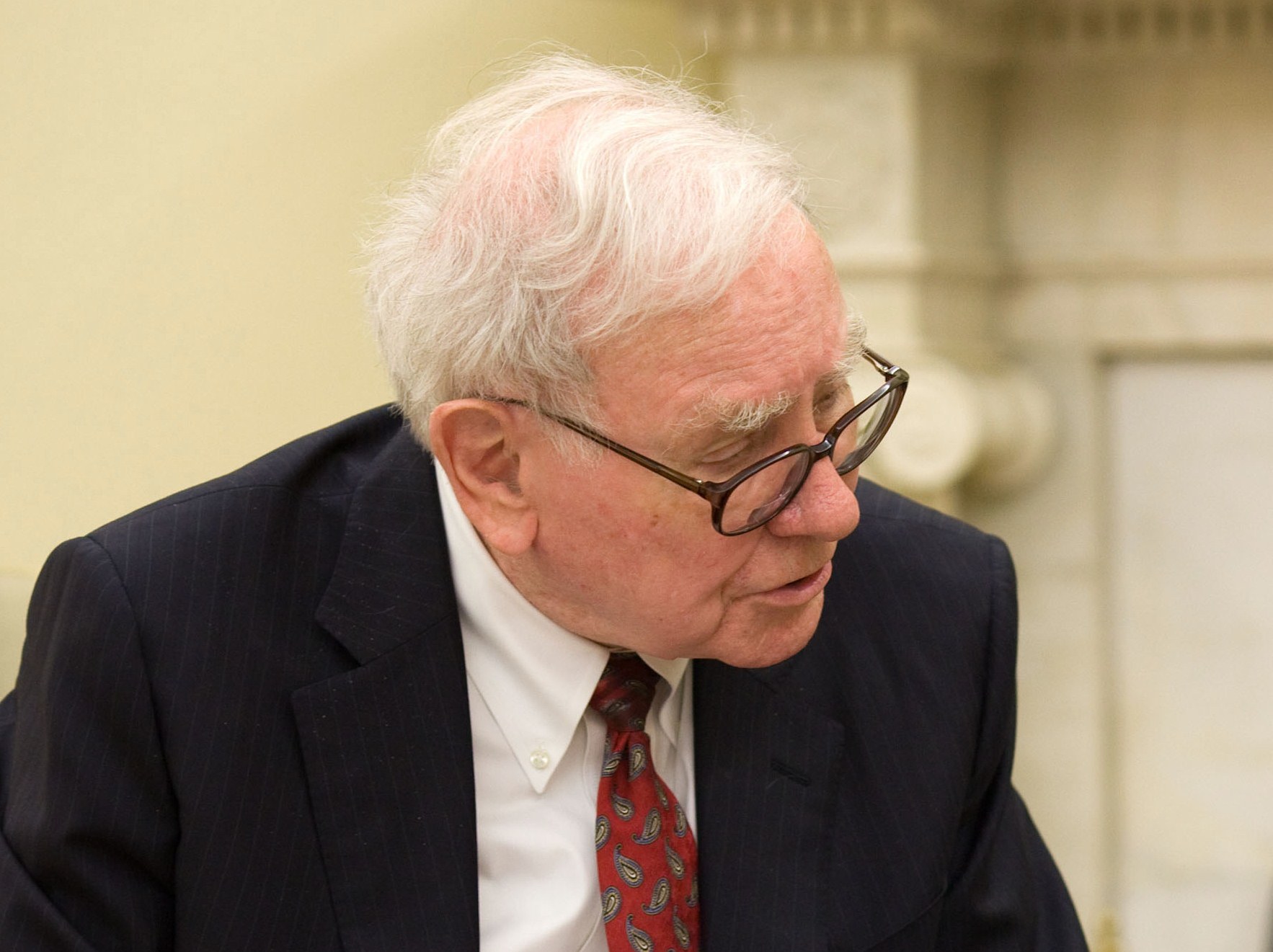Industrials
Why Warren Buffett Is Growing More Cautious About the Insurance Industry
Published:
Just this past Friday, Berkshire Hathaway Inc. (NYSE: BRK-A) announced its earnings and 24/7 Wall St. asked the question of whether its 20% operating income gain trumped the company’s 47% book value premium. Warren Buffett faced some tough questions over the weekend at the annual shareholder meeting, but from the looks of it, the ship will keep sailing after 50 years like it always has. The Janney Capital team spent the weekend in Omaha to see what the Oracle of Omaha had to say about his company’s most recent earnings and business updates. Source: White House Photo by Pete Souza
Source: White House Photo by Pete Souza
Note that Janney does not formally cover Berkshire Hathaway.
From an insurance investor perspective, the biggest takeaway by Janney was that Buffett put an end to the popular parlor game of which large commercial underwriter that he would like to acquire by asserting they are unlikely to ever buy one and will simply look to grow its commercial platform organically.
One of the other main takeaways was that Buffett’s plan to grow a commercial underwriter organically may disappoint some non-Berkshire investors. Insurance investors were convinced that Berkshire would one day go elephant hunting for a large commercial underwriter. This is not the case anymore. Buffett noted that doing a large deal would add too much goodwill.
ALSO READ: Is Berkshire Hathaway Becoming More Private Equity Than Conglomerate?
Buffett thinks that the reinsurance industry results over the next 10 years will be worse than the previous 20 years, as the influx of capital and low barriers to entry will dampen returns. One thing he did note was that Berkshire will continue to have unique opportunities because of its scale.
According to Janney’s analyst, Ryan Byrnes:
We were surprised to learn that Berkshire is now offering a direct workers compensation product to small US companies. Buffett and GEICO were early adopters of the direct model for personal auto, so this new capability is something to monitor. Mr. Buffett thinks that this direct product just gives more chances for Berkshire to find clients, but he is unsure of its potential. While it is never smart to doubt Buffett, we still think small business owners prefer a broker holding their hand through the coverage features and claims handling.
Now, Buffett downplayed a couple things. First, he downplayed that the risk of global warming for property casualty underwriters, simply because policies are underwritten on an annual basis. Second was the concern that Berkshire may be labeled a non-bank SIFI or its EU equivalent because Berkshire gets far less than 85% of its revenues from financial products and its track record in recent financial crises.
In Janney’s report, the firm detailed Berkshire Hathaway’s position on autos and insurance:
Mr. Buffett does not plan to try to cross-sell GEICO products at his newly acquired auto dealership chain. He simply doesn’t think it works well and could potentially increase GEICO’s acquisition costs (if he had to incentivize car salesman).
Class A shares of Berkshire Hathaway closed Friday up 1.1% to $215,800.00, in a 52-week trading range of $185,005.00 to $229,374.00. Class B shares ended the week at $143.36, in a 52-week trading range of $122.72 to $152.94.
ALSO READ: Would Warren Buffett Consider Acquiring Harley-Davidson?
Want retirement to come a few years earlier than you’d planned? Or are you ready to retire now, but want an extra set of eyes on your finances?
Now you can speak with up to 3 financial experts in your area for FREE. By simply clicking here you can begin to match with financial professionals who can help you build your plan to retire early. And the best part? The first conversation with them is free.
Click here to match with up to 3 financial pros who would be excited to help you make financial decisions.
Thank you for reading! Have some feedback for us?
Contact the 24/7 Wall St. editorial team.